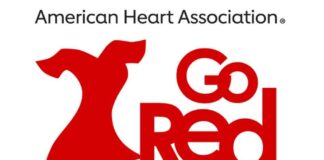The National Institutes of Health (NIH) technology transfer offices have hit a roadblock, halting the filing of new patent applications and restricting the licensing of existing ones for the past five weeks, as reported by STAT. The agency’s clampdown on external communications and new contracts has hindered its ability to share research materials with collaborators and take essential steps to ensure that the discoveries made by its scientists can be utilized in the development of drugs and vaccines. This disruption has left employees feeling overwhelmed, with one NIH patent specialist who was recently let go expressing concern about important work slipping through the cracks.
On a different front, Marty Makary, President Trump’s nominee to head the Food and Drug Administration (FDA), took center stage at his Senate confirmation hearing. Despite facing little interrogation from senators on key FDA policy matters, Makary focused on the Make America Healthy Again movement’s greatest hits. During the hearing, Makary discussed a sudden cancellation of an FDA vaccine advisory committee meeting, promising to look into the matter without committing to rescheduling the meeting. He also pledged to continue evaluating the safety of prescribing the abortion drug mifepristone remotely and investigating potential drug interactions. Makary emphasized his impartial approach to drug regulation, stating that he had no preconceived notions on the best way to oversee the drug.
NIH Patent Freeze: Implications and Concerns
The recent freeze on patent applications at NIH’s technology transfer offices has raised significant concerns about the agency’s ability to facilitate collaboration and innovation. With research materials being withheld from potential partners and internal processes disrupted, the flow of discoveries from NIH scientists to the development of life-saving treatments is at risk. This situation not only impacts the agency’s ability to contribute to medical advancements but also jeopardizes the careers of dedicated employees who are navigating the challenges of these restrictions.
The NIH’s role as a prominent hub of research and discovery underscores the urgency of resolving the patent freeze issue. Without the freedom to patent new findings and license existing technologies, the potential for groundbreaking treatments and cures may be stifled. The testimony of the laid-off NIH patent specialist sheds light on the personal toll of these restrictions, highlighting the human impact of bureaucratic obstacles on individuals dedicated to advancing scientific knowledge and improving public health. As the agency works to address these challenges, the broader scientific community awaits a resolution that will enable NIH to continue its vital mission of driving innovation in healthcare.
Senate Hearing for FDA Chief: Key Takeaways and Future Directions
Marty Makary’s appearance at the Senate confirmation hearing for the FDA chief position offered insights into his approach to leading the agency and addressing critical healthcare issues. While senators focused on broader policy matters, Makary’s responses indicated a commitment to evaluating specific drug safety concerns and regulatory challenges. His willingness to explore issues such as remote prescribing of medications and potential drug interactions reflects a proactive stance on ensuring patient safety and effective healthcare delivery.
The cancellation of the FDA vaccine advisory committee meeting raised questions about the agency’s responsiveness to public health priorities and the need for transparent decision-making processes. Makary’s promise to review the situation underscores the importance of maintaining open communication channels and engaging with stakeholders to address emerging healthcare challenges. As he navigates the confirmation process and prepares to lead the FDA, Makary’s responses at the hearing offer a glimpse into his priorities and the potential directions for FDA policy under his leadership.
Andrew Joseph’s coverage of health, medicine, and the biopharma industry in Europe provides valuable insights into the evolving landscape of healthcare innovation and regulatory oversight. His reporting on the NIH patent freeze and the Senate hearing for the FDA chief highlights the intersection of scientific advancement, policy decisions, and public health considerations in shaping the future of healthcare. Through in-depth analysis and expert commentary, Joseph’s work contributes to a deeper understanding of the challenges and opportunities facing the healthcare sector, both in the United States and abroad.


















